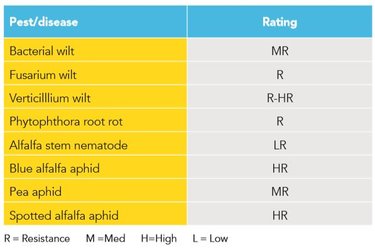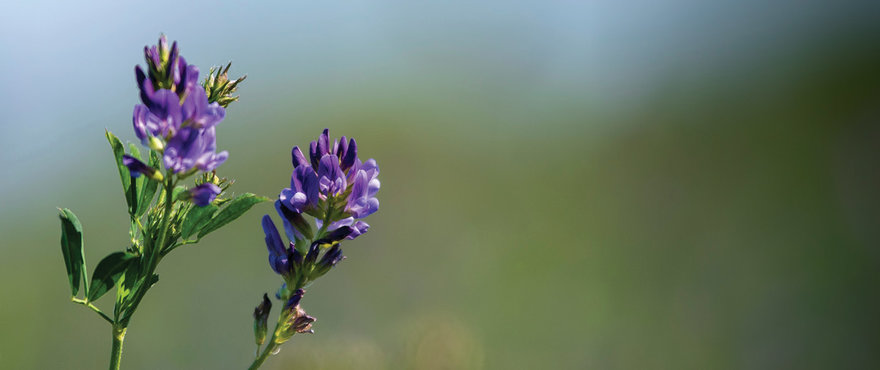Download a copy of the PX1 Alfalfa factsheet.
Perfectly suited to cut and carry operations, PX1 is a high performing, highly winter active variety bred from elite parent material from Australia and the USA. It demonstrates extremely fast establishment and will provide high year round forage yield, which means it can be adapted to various farming systems that demand high performance products.
Key features
- High yield potential, exceptional trial results in both Australian and US trials
- Bred for improved persistence and productivity over traditional dormancy 10 varieties
- Good all round pest and disease resistance/tolerance
Key benefits
- Very high yielding in desert environments
- Superior establishment and reduced time to first cut compared to CUF 101 and Siriver
- PX1 35% higher first cut increase over CUF 101 and Siriver in US trial results
Trial Results
PX1 has performed well in various trials thus far. Ongoing work is being conducted to assess its long-term performance.

Variety management/agronomy
It is important that alfalfa seedlings are given adequate time to establish prior to the first cut or grazing. Failure to do so can result in reduced plant numbers and hence plant density and the quality of the overall stand reduces. The first cut / graze should occur when the plants have an established root system and height around 5–10 cm. This may take 6–8 weeks depending on growing conditions. After the initial cut / graze it is important that the stand be given adequate time to regrow before going through the process again. This is normally around 4–6 weeks, care should be taken to avoid over stocking.
Pest and disease ratings (crop characteristics, UC Davis, USA)
PX1 is highly resistant (HR) to spotted alfalfa aphid (Therioaphistrifolii) and blue green aphid (Acyrthosiphon kondoi). As with other alfalfa varieties, PX1 is susceptible to damage from red legged earth mite (Halotydens destructor) and control measures need to take place prior to seeding or soon after germination. AgriCote seed will aid establishment in these circumstances.
PX1 is resistant (R) to phytophthora root rot (Phytophthora medicaginis) and anthracnose.

Plant Breeders Rights (PBR): This variety is registered under Plant Breeders Rights (PBR) in Australia. Unauthorised commercial propagation or any sale, conditioning, export, import or stocking of propagating material is an infringement under the Plant Breeders Rights Act (1994). Any breach of this legislation will leave the grower liable for prosecution.
Disclaimer: The information presented in this brochure is from official and other sources and is considered to be reliable. It is provided in good faith and every care has been taken to ensure its accuracy. Heritage Seeds does not accept any responsibility for the consequences that may arise from the acceptance of recommendations or the suggestions made.


